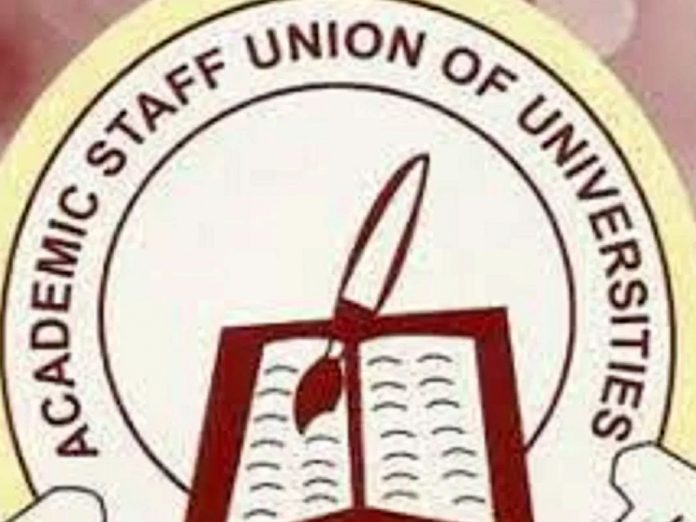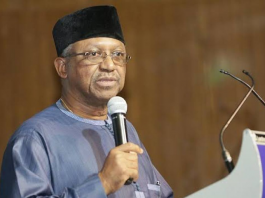Credit: Daily Trust
The Academic Staff Union of Universities (ASUU) is opposing an information technology, Integrated Payroll and Personnel Information System (IPPIS) that is designed to curb payroll fraud in Nigerian Universities. The rejected system has produced amazing results since its introduction. It has solved the problem of ghost workers in the Nigerian public service and has also saved the country billions of Naira by getting rid of thousands of living ghosts that go home with salaries every month. Between 2016 and 2017 alone, the Federal Government was said to have been able to save the sum of N208.4 billion in personnel costs. Thanks to IPPIS. Right now, the government is planning to enroll its employees in tertiary institutions on this platform to ensure no lecturer cheats the system when it comes to payment of salary. During his 2020 budget presentation in October before the National Assembly, President Muhammadu Buhari said that any federal employee not captured on the IPPIS should forget receiving monthly salary, beginning from October 2019. But some ASUU members have vehemently opposed this move on the ground that the electronic payroll system violates university autonomy and does not capture the peculiarities of their profession. The body also threatened to embark on an industrial action if the government goes on to enlist its members on the payroll system. This threat has over the years turned out to be the best language the Nigerian academics speaks to address issues, and it has never failed them. According to Prof Biodun Ogunyemi, the National President of the union, “The system does not, for example, capture the remuneration of staff on sabbatical, external examiners, external assessors, and Earned Academic Allowances. It does not address the movement of staff as in the case of visiting, adjunct, part-time, consultancy service, which academics offer across universities in Nigeria.” Ogunyemi further argues that “The implementation of IPPlS in Nigerian Universities will further localise their operations and perspectives, thus negatively impacting their ranking in the global academic community. “The IPPIS does not recognise the 70 years retirement age of academics in the professorial cadre, and 65 years for those in the non-professorial cadre, as against the 60 years in the civil service”.
Based on this argument, it is clear that ASUU is just trying to be too clever by half because the system the lecturers are rejecting will not only encourage openness and transparency but also expose payroll fraud in the Nigerian University system. Could it be that ASUU has not seen payroll fraud in the Nigerian University system as an issue or the union has a better way to tackle the sharp practices of some lecturers without using the IPPIS? To make ASUU see reason why the IPPIS is here to sanitise wage payment system, the Office of the Accountant-General of the Federation (OAGF) has reportedly held several meetings with vice-chancellors, registrars, bursars of Nigerian Universities, National Universities Commission, ASUU and non-academic unions on how the IPPIS works. In a two-page advertorial in newspapers, the OAGF also tried to allay the fears of the lecturers on the so-called peculiarities the union has been using as a basis for rejecting the IPPIS.
In the advertorial, the “Visiting lecturers are entitled to 50 per cent of their salary in the visiting institutions, but only limited to one institution as approved by the NUC, NBTE and NCCE, their regulatory body.” Despite these explanations, the universities lecturers, who are expected to know better and be the ones at the fore-front of campaigns on the adoption of technological innovations in the academic environments are agitating against the use of the IPPIS system. This was the same way ASUU rejected the implementation of Treasury Single Account in universities in 2015. It is curious that ASUU is taking this stance on an issue that is meant to address a fundamental problem in its community. Moreover, the claim that university must be independent and autonomous has become a weapon the union willfully deploys to arm-twist the government to do its bidding. We really need to ask this question; what really is the value of autonomy of a Nigerian university that relies solely on government for funding, research grants, paying salaries, and building physical infrastructure? If Nigerian universities do not seek to be autonomous in respect to funding, why does it bother ASUU that the one who pays the piper decides to call the tune by using IPPIS? Federal Universities in Nigeria can’t claim to be completely autonomous when their financial strength rests on the shoulders of the Federal Government. It must be noted that institutions that are truly autonomous do not depend on government to pay salaries and put infrastructure in place. The claim that the IPPIS will erode the autonomy of the universities is an empty justification for ASUU’s argument. That claim reeks of ASUU’s desperation to kick out the system by all means. If looking up to the government for salaries, grants and subventions from government does not erode university’s right to self-governance, paying salary through IPPIS won’t take away their autonomy.
It must, however, be noted that not all ASUU members are against the introduction of IPPIS, some of them, especially junior lecturers are excited about it because they believe the payroll system will stop some funny deductions by university management from their salaries. One of such lecturers has argued that ASUU is protesting because the association is made up of the big boys who steal from salaries of junior lecturers. We don’t want the federal government to bow to their pressure, please.”
Rather than fighting against an innovation that will ensure accountability and transparency, ASUU should focus on maintaining standards in Nigerian universities. We want to see a union that will strongly oppose sex-for-mark menace on our campuses not the one that will argue against introductions of legislation to curb it. Rather than attacking a system that will not in anyway shortchange them, ASUU needs to monitor academics who collect grants from Tertiary Education Trust Fund for higher degrees abroad only to embezzle such funds.
Finally, rather than calling for the suspension of the IPPIS, we expect ASUU to urge government to incorporate the so called peculiarities of academics into the system. That is if the union has nothing to hide. Wahab can be reached at akinbayowahab@gmail.com
Read more: https://www.dailytrust.com.ng/




